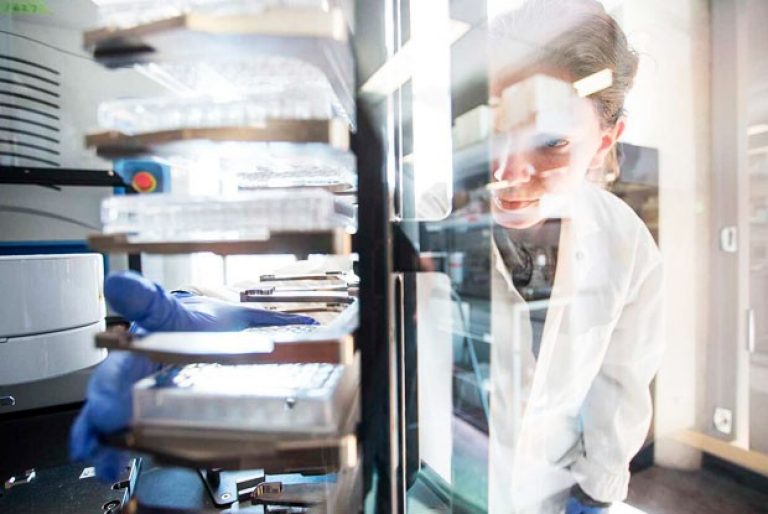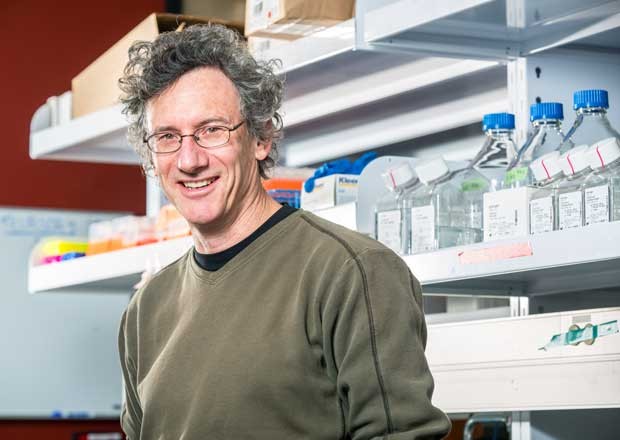NSERC commits $1.65M for synthetic biology research and training at Concordia

The Natural Sciences and Engineering Research Council of Canada (NSERC) has committed $1.65 million dollars over six years to establish a research and training program at Concordia’s Centre for Applied Synthetic Biology.
The funds were awarded after Malcolm Whiteway, professor of biology and the Canada Research Chair in Microbial Genomics, and the grant application team submitted a proposal to NSERC’s Collaborative Research and Training Experience (CREATE) program.
The Synthetic Biology Applications CREATE program — or SynBioApps — will help students acquire and develop important professional skills that complement their academic education and improve their job-readiness.
Concordia is a natural fit
“As the Canadian leader in synthetic biology and as the home of the country’s only genome foundry, Concordia is a natural fit for a training program in this growing area of research,” says Christophe Guy, vice-president of Research and Graduate Studies.
“In offering a program like SynBioApps, we are providing our students with both a fundamental education in science and the business skills they’ll need to transition into their professional careers.”
The program’s aims are twofold: First, it will teach students how to design and construct cells and proteins for the development of new products related to human health, green technologies, and fundamental biological investigations. Second, it will provide cross-disciplinary training and internship opportunities through the university’s District 3 Innovation Center.
SynBioApps will be open to students from biology, biochemistry, engineering, computing, and mathematics.
"The ability to apply engineering approaches to biological systems promises to revolutionize both biology and industry,” says Whiteway, who is also a member of the Centre for Applied Synthetic Biology.
“The SynBioApps program at Concordia will provide a training program to develop the students who will both investigate the biology and build these industries."
 Malcolm Whiteway
Malcolm Whiteway
Partners and collaborators
The program will also facilitate student exchanges and partnerships with other Canadian universities that excel in synthetic biology research, including the University of Ottawa, the University of Toronto, the University of British Columbia and INRS-Institut Armand-Frappier.
Whiteway’s co-applicants on the successful funding proposal included Concordia faculty members Michael Hallett, Aashiq Kachroo, Jin Suk Lee and Vincent Martin from the Department of Biology, and Nawwaf Kharma and Steve Shih from the Department of Electrical and Computer Engineering.
The proposal also included industry collaborators such as Mara Renewables, Lallemand-Mascoma and Hyasynth Bio.
Mahzad Sharifahmadian, manager of the D3 Biolab, says that District 3 training will help students to explore commercially viable opportunities in their field of research.
“What makes D3's training special is that we have designed the program and activities specifically for those with PhD life sciences profiles. The program is seasoned with essential training on skills and challenges that are specific for life science-synbio startups.”
Concordia hopes to welcome the first cohort of students to SynBioApps in the fall.
For more information about the program, email: SynBioAppsHR@concordia.ca.




